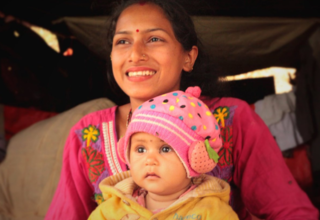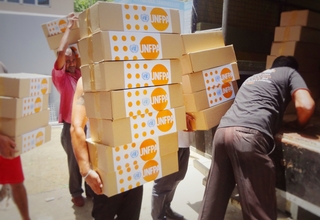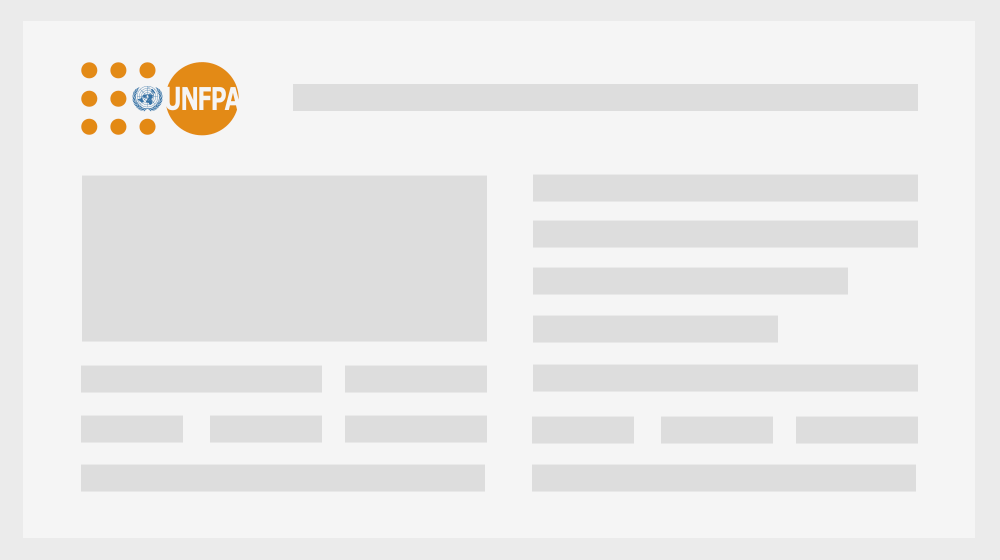Every 19 August, the UN family, including the United Nations Population Fund, UNFPA, observes World Humanitarian Day to mark the day when, in 2003, 22 aid workers were killed in a bombing at the UN headquarters in Baghdad. We pay tribute to all people affected by humanitarian crises and to those who have lost their lives in humanitarian service. We celebrate the spirit that inspires humanitarian work globally - including Asia and the Pacific, the most disaster prone region in the world. UNFPA's Asia-Pacific Regional Office, based in Bangkok, supports 23 country offices in responding to humanitarian crises when they occur - to help ensure access to safe childbirth for pregnant women, provide health services for new mothers and their infants, prevent and respond to sexual assault and other gender-based violence, and empower young persons to participate in disaster risk reduction and response. Here are some of the stories from across our region that complement #ShareHumanity - the theme of World Humanitarian Day 2015.
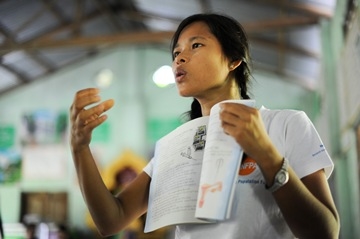 |
Youth spring into action in wake of Myanmar’s floods MYANMAR: “Sometimes it is overwhelming and we miss meals but we want to help the survivors of the floods”. Ma Tin Tin Myint, a youth volunteer, has been on the frontline of the rapid response for communities affected by the floods in Myanmar. She is distributing UNFPA’s trademark dignity kits and assisting tirelessly in mobile clinics. |
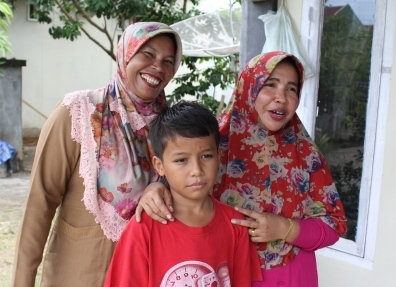 |
From tsunami survivor to heroic midwife INDONESIA: The morning of 26 December, 2004, started out like any other Sunday for Nur Asiah. The midwife and mother of two was up early washing clothes outside her house in a coastal village in the district of Aceh Jaya. But her weekend routine was abruptly interrupted when a 9.1magnitude earthquake struck off the coast of Sumatra. Ten years on, the midwife looks back on saving lives during one of the worst natural disasters in recorded history. |
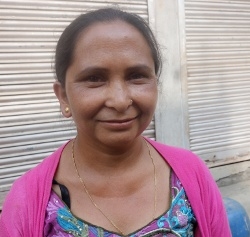 |
When disaster strikes, humanitarian heroes emerge NEPAL: Sita, a paralegal in her everyday life, gathered 70 breastfeeding women and girls whose houses had been damaged or destroyed by the earthquake and made sure they had access to basic hygiene. |
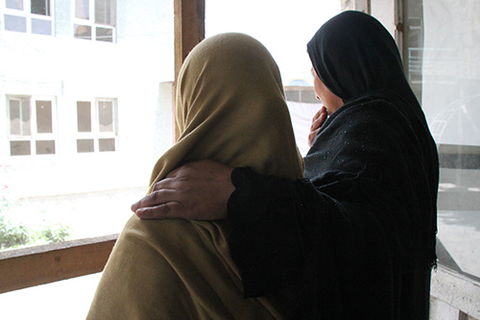 |
Snatched from her home, an Afghan girl's road to recovery AFGHANISTAN: Zarmina was stolen from her home and secretly moved between places where she was sexually abused by many men. Everyone had lost hope of finding her, but her mother refused to give up. |
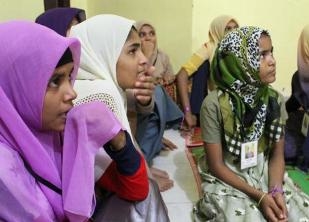 |
INDONESIA: Amid the crisis of refugees at sea in Southeast Asia, UNFPA is providing essential reproductive health care services and helping to ensure the protection needs of ethnic Rohingya Muslims and Bangladeshi women and girls. The migrants arrived on the northeastern coast of Aceh, Indonesia, after a failed attempt to reach Malaysia or Australia. |
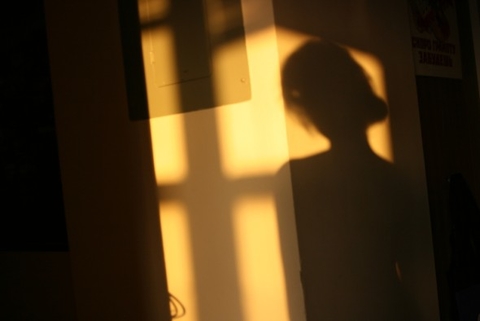 |
Offering protection and support to survivors of genderbased violence NEPAL: After losing her house to the devastating earthquake that hit Nepal, Sanu, 20, was lured away from her hometown by promises of a new life. Instead, she says her would be husband raped her and escaped. She has found refuge in a UNFPA-supported safe house. |
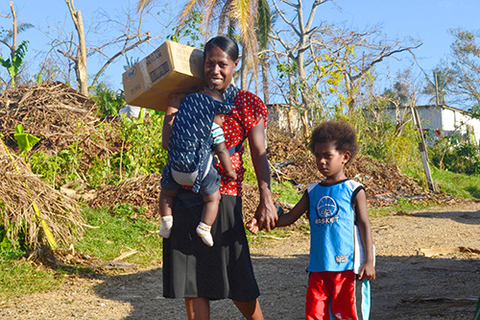 |
Meeting reproductive health needs in the wake of PACIFIC: In its initial response to Cyclone Pam, one of the worst natural disasters in Vanuatu’s history, UNFPA worked with local Government and partners to provide maternal health and adolescent reproductive health services, as well as interventions to help prevent genderbased violence. |


